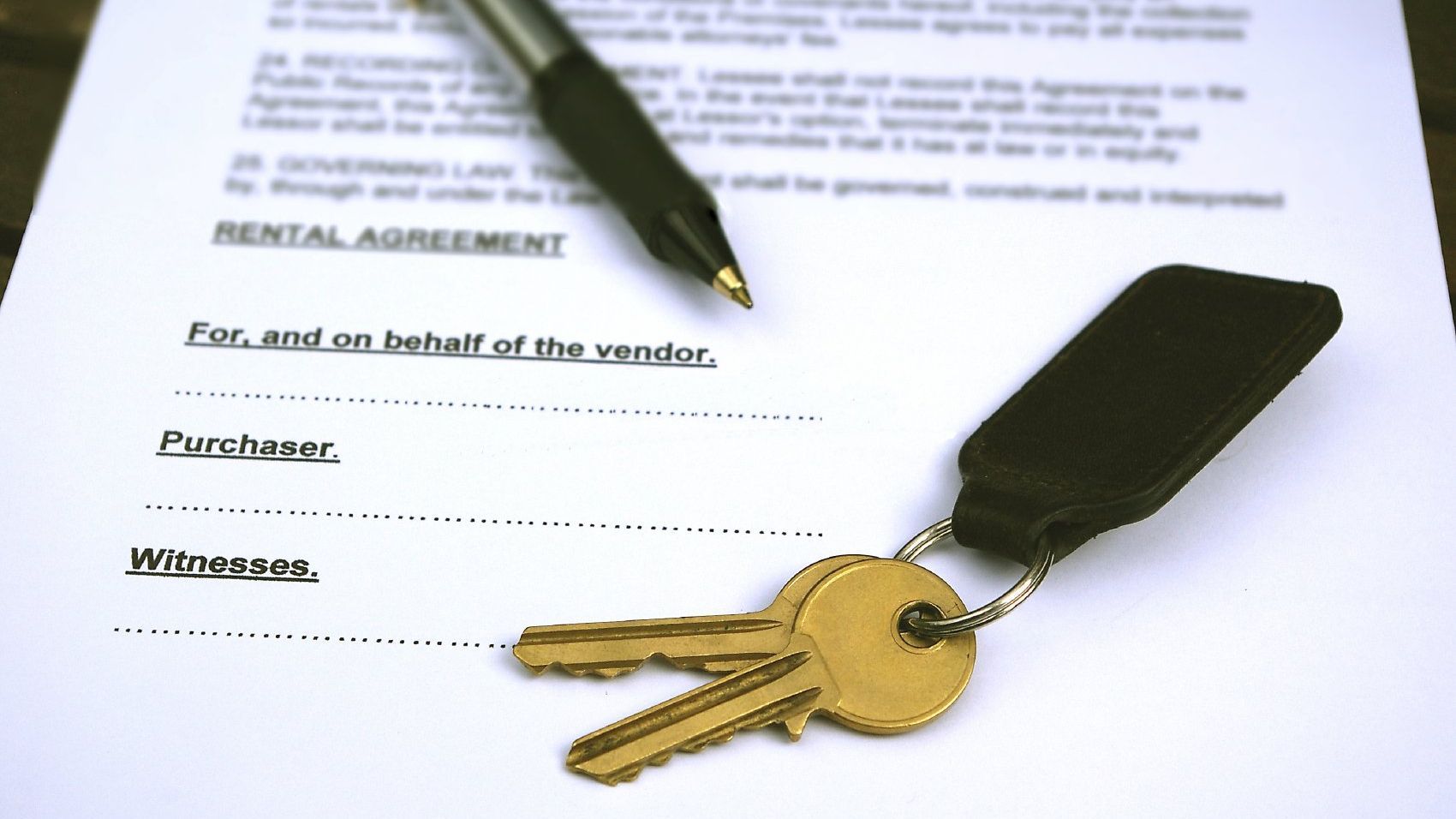NEW-BUILD REAL ESTATE AND NEW-BUILD PROJECTS IN ITALY
Buying a property under construction in Italy is an attractive opportunity to design your dream home according to your individual ideas.
Have you found a property in Italy that is still under construction? Then the Italian building code must be observed.
Buying a property under construction in Italy not only gives you the opportunity to customize the property according to your wishes, but also to acquire a property that perfectly meets your expectations.
Unlike buying a used property, where the condition and furnishings are already known, with a new property you have the freedom to plan everything according to your wishes.
ITALIAN LAW ON THE PURCHASE OF REAL ESTATE UNDER CONSTRUCTION
Under Italian construction law, a building under construction is a building for which a building permit has been applied for but which has not yet been built, or which has not yet been completed because it is at a stage where the certificate of occupancy cannot yet be issued.
Here you will find comprehensive information and professional advice to make this process as safe and efficient as possible for you.
HOW TO PROTECT YOURSELF WHEN BUYING A PROPERTY TO BUILD IN ITALY
It happens that those who decide to buy a house under construction spend the time from the purchase agreement to the notarization and the subsequent handing over of the keys in uncertainty. Will everything go well? Will the builder be able to complete the work as planned and on time? Will the house really be as described?
Italian construction law provides a number of protections for the buyer. In general, these are:
1. a careful regulation of the content of the preliminary contract (called "compromesso");
2. the seller's obligation to provide a bank guarantee or surety to guarantee the amounts delivered or to be delivered up to the deed;
3. the obligation of the Vendor to provide the Purchaser with an insurance policy for a minimum period of ten years against damages arising from the total or partial deterioration of the property or from defects in the construction;
4. the division of the mortgage prior to the conclusion of the contract of sale.
PRE-CONTRACT TO BUILD IN ITALY
Der erste Schritt beim Kauf einer im Bau befindlichen Immobilie ist die Unterzeichnung des Vorvertrags ("contratto preliminare"), in dem die Immobilie und ihre Eigenschaften genau bezeichnet, der Preis festgelegt und die Lieferbedingungen sowie die Frist bestimmt werden, innerhalb derer man zum Notar gehen muss, um den endgültigen Kaufvertrag zu unterzeichnen, mit der das Eigentum an der Immobilie auf Sie übertragen wird.
Doch bevor man zu diesem Ergebnis kommt, sind beim Verkauf von Immobilien im Bau einige Schritte zu unternehmen. Das Verfahren ist gesetzlich streng geregelt, um die schwächere Partei, d.h. den Käufer, zu schützen.
Wieso brauche ich den Notar?
Der Vorvertrag über den zu bauenden Haus bezieht sich nach italienischem Baurecht auf den Verkauf einer "zukünftigen Sache", d. h. einer Sache, die zum Zeitpunkt der Vertragsunterzeichnung noch nicht entstanden ist. Diese Besonderheit erfordert das Eingreifen des Notars, der den Vorvertrag in Form einer öffentlichen Urkunde abfasst und - wenn eine der Vertragsparteien dies beantragt - in den öffentlichen Grundbüchern umschreibt, um den Käufer zu schützen (z. B. im Falle des Konkurses des Bauunternehmers vor der Fertigstellung der Immobilie und ihrer Übergabe). Die Umschreibung im Italienischen Grundbuchamt des Vorvertrags dient dazu, den Käufer vor dem Risiko zu schützen, dass eine andere Partei Anspruch auf das Eigentum an der Immobilie erhebt.
Was soll der Vorvertrag enthalten?
Gerade um den Käufer vor unliebsamen Überraschungen zu schützen, legt das Gesetz den Mindestinhalt des Vorvertrags fest, d. h. die Dinge, die auf keinen Fall in dem Vertrag fehlen dürfen, und dazu gehören
- die Angabe der Baugenehmigung (oder des Bauantrags) und aller sonstigen Berechtigungstitel;
- die Angabe etwaiger Verpflichtungserklärungen und städtebaulicher Vereinbarungen;
- die Leistungsbeschreibung und die Projektzeichnungen;
- gegebenenfalls das Vorhandensein von Hypotheken oder vorbelastenden Abtretungen, die das Grundstück belasten
- die technischen Merkmale des Bauwerks;
- die maximalen Ausführungsfristen für die Immobilie;
- den Gesamtpreis für den Verkauf;
- Angaben zur Gewährleistung,
Was muss der Notar beachten?
Beim Abschluss des endgültigen Kaufvertrags muss der Notar prüfen, ob der Verkäufer diesen Verpflichtungen nachgekommen ist und ob die Baugenehmigung in Ordnung ist, sonst kann der italienische Notarvertrag nicht aufgesetzt werden.
Um das Risiko unangenehmer Überraschungen zu vermeiden, behält der Notar auch den Restbetrag des vom Käufer für den Immobilienkauf gezahlten Preises ein und überweist ihn nur dann an den Verkäufer, wenn die Urkunde erfolgreich umgeschrieben wurde; andernfalls gibt er den Betrag an den Käufer zurück.
THE GUARANTEES FOR A NEW-BUILD PROPERTY IN ITALY
In addition to the obligation to conclude the preliminary contract for a property to be built in the form of a notarial deed, there are additional guarantees under Italian construction law in favor of the buyer of a house in Italy that is under construction and therefore not yet fully completed. In particular, the seller has the following obligations
1. provide a guarantee from a bank or insurance company to guarantee the repayment of any deposit or advance received prior to the signing of the final purchase contract;
2. take out an insurance policy with a minimum term of ten years to cover any construction defects and the risk of destruction of the property (e.g. in the event of collapse or total or partial destruction of the building under construction).
ITALY: bank guarantee FOR A PROPERTY UNDER CONSTRUCTION

According to Italian law, the sale of a property under construction is null and void if the bank guarantee required of the seller is missing. This is a "relative nullity" that can only be invoked by the buyer: The buyer can therefore object to the absence of the guarantee by requesting the annulment of the preliminary contract already signed, without having to go so far as to request the final purchase contract.
The purpose of the bank guarantee is to ensure that, in the event of a crisis situation on the part of the developer, the buyer will be reimbursed for the sums actually paid by him up to the time of the conclusion of the contract, as well as the value of any other consideration (together with the corresponding legal interest accrued up to the time of the occurrence of the aforementioned situation).
A bank guarantee may also be issued jointly by several guarantors. In this case, the individual guarantees may be given either by separate deeds for each guarantor and their respective shares, or by a single deed listing the guarantors and their respective shares. The division of shares shall be effective as between the guarantors, without prejudice to their joint and several liabilities towards the purchaser of the property to be constructed.
The bank guarantee must cover the maximum amount of the total amount of the guarantee, corresponding to the amounts and value of all other consideration already received by the developer and still to be received by him in accordance with the conditions set forth in the contract, without any deductible.
In fact, the effectiveness of the bank guarantee expires when the guarantor receives a copy of the deed of transfer of ownership of the property or the final deed of assignment from the developer or any other party.
INSURANCE FOR A NEW-BUILD HOUSE IN ITALY
The ten-year insurance policy covers material and direct damage to the building, including damage to third parties, for which the builder is liable pursuant to Article 1669 of the Civil Code, caused by total or partial deterioration or serious defects in the building, by a defect in the land or by a defect in the construction, and in any case occurring after the conclusion of the final sale or transfer contract.
The insurance takes effect from the date of completion of the building.
The insurance cover also applies in the event of problems with the subsoil, in particular if the property is no longer suitable for its intended use as a result of defects. However, in the case of defects in the subsoil, the contractor's liability is excluded if the defect is discovered before the start of the work and the client nevertheless demands that the work be continued, provided that the defect occurred and was discovered earlier.
What defects are covered?
As far as construction defects are concerned, these are those that can affect both the essential parts of the property and certain additional items that allow the permanent use of the property for which it was built, such as the heating system or the chimney itself, and which are therefore affected when defects are present.
What is covered by the insurance?
Italian jurisprudence has specified the construction defects that are covered by the ten-year warranty:
- Laying or breakage of the flooring inside and outside the house (e.g. on the stairs) and the adjacent walls.
- Damage to common works related to floors and installations;
- Infiltrations in the internal and common parts due to poor waterproofing;
- Inadequacies and malfunctions related to water supply and septic tanks;
- The non-functioning of the elevators;
- any malfunction of the heating system;
- the collapse or disintegration of external facades.
On the other hand, the builder is not liable for aesthetic defects, for which the legislator provides a less strict regulation, obliging the client to complain and report defects within 60 days, in accordance with article 1667 of the Civil Code.
There are several aspects to be taken into account when taking out liability insurance, starting with the limits of indemnity of the policy itself: For example, it is essential to make sure that the amount set aside to insure the home actually covers all the costs, and it is also advisable to check other important points, such as non-payment of the premium and any deviations in the course of the work from the original project.
ADDITIONAL COSTS FOR BUYING REAL ESTATE IN ITALY
The most difficult part of the decision to buy a house under construction is, of course, the money.
What are the additional costs to be paid when buying a property under construction in Italy?
It starts with the initial payment, which is guaranteed by the constructor's bank guarantee and is valid until the purchase contract is signed.
Then there is the preliminary contract ("compromesso"), which is a public or private deed notarized by a notary public that contains the commitment to complete the purchase, which in turn protects the buyer. The law stipulates that the preliminary contract must be registered with the tax authorities within 20 to 30 days of its conclusion. This step is subject to a registration tax, which is fixed at 200 euros.
It is 0.50% of the sums paid as a deposit and 3% of the sums paid as an advance on the purchase price if the transfer is not subject to VAT, otherwise it is a fixed amount of 200 euros.
The tax paid on the registration of the preliminary contract will be deducted from the tax due on the registration of the final contract.
There is also a stamp duty: 16 euros per 4 pages (and in any case per 100 lines) or 155 euros if the preliminary contract is drawn up in the form of a public deed or a notarized private contract.
Then there is the land registry tax of 200 euros and the mortgage tax of 200 euros. Then there is VAT, which is 10% of the purchase price of a property under construction.
And that's not all: there are also notary fees, which depend on the notary's tariff.








